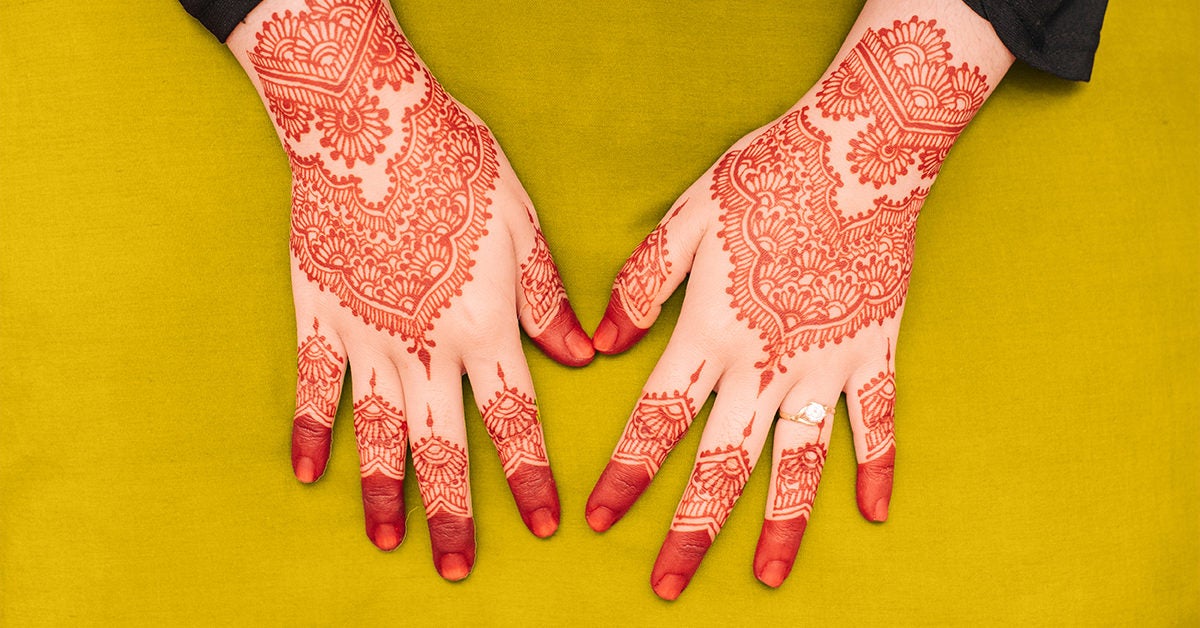
Historical Importance Of Henna
Many associate henna or mehendi with India as it remains an integral part of the Indian wedding tradition for the bride to have her arms, hands and feet covered in elaborate and delicate designs. Though it’s history and usage span all around the Middle East. It’s oldest reported use dates back to before-christ era. In Egypt it was utilized to dye the hair and nails of pharaohs. It was also used during the mummification process. It was even said that Cleopatra herself used henna to adorn her body. Perhaps Henna’s most well observed quality is it’s natural cooling effect, which offers a delightful tingling sensation to the skin. Once this property was discovered, people of the desert used henna to cool down their bodies. They did so by making a henna paste and smearing it on themselves, they achieved an air conditioning effect. The sensation is felt throughout the body for as long as the henna stain remains on their skin. It didn’t take long before the desert people turned the henna smears into works of art. This is how mehndi tradition was born.
How To Use Henna And Its Properties
The scientific name of mehendi is “Lawsonia Inermis”. Only parts of the mehendi plant are used. The parts used are flowers, bark and leaves. Talking about its energetics and properties, it is bitter in nature, astringent and has a cooling effect on the body. It pacifies cough, cold and the “pitta”. It may aggravate vata. Henna is antipyretic which means it has the ability to combat fever and eventually restore proper functioning of the body. It also has the ability to calm the nervous system. Henna or Mehndi is an evergreen plant. It is a member of the Loosestrife family. Henna originally comes from Egypt, a country that is still one of the main suppliers of the plant. The henna plant typically grows in the drier climates of the middle east and India. Mehendi produces a reddish brown pigment or dye that is made by crushing dried leaves of the mehendi plant and then mixing the powder with natural acidic fluids like lemon juice, black tea and eucalyptus oil. One tip to remember is that henna that is black in color can be hazardous and should not be used. The dark black color implies that the mehendi plant is adulterated with chemical compounds to produce such a dark pigment. Also, hair dyes that claim to be henna based occasionally contain other chemicals that can be harmful or cause allergic reactions for those who have sensitive skin, so read your labels carefully!
Benefits Of Henna
- Regulates blood pressure: This one of the most undervalued effects of henna. It’s used to balance your heart health. You can consume henna water or seeds, you can enjoy a hypotensive effect that can relieve your stress employee computer monitoring software
It can relieve the stress on your cardiovascular system and effectively lowers blood pressure. This can also help prevent the plague and platelet build-up in the heart and arteries, preventing heart attacks and strokes.
- To treat several skin conditions: Traditional medicinal uses for henna include being used as a coagulant for open wounds and a poultice to soothe redness, swelling and eczema. Fresh leaves could be used as a topical antiseptic for fungal or bacterial skin infections, including ringworm. It has antifungal and antibacterial properties.
- Promotes hair growth: Henna helps to improve hair health. It helps seal the hair cuticle, prevents hair breakage and increases the shine and appearance of the hair. It could be used as one of the natural remedies to combat dandruff and dry scalp.
Also this could be used as an alternative to chemical based hair dyes and colors. It can be used as a substitute to burgundy or brown dyes. Dyes make your hair rough and dry leading to hair loss. In every way possible way henna only benefits your hair. It colors your hair and cools your body. To use chemical based hair dyes you need to bleach your hair. It is such a messy process. However, you can directly apply henna to your hair without bleaching it. You are really avoiding all the mess, you see.
- Reduces “pitta” in the mind: The essential oil that is derived from Henna, also known as Hina, is used in India for religious ceremonies and prayer. It is great for opening our psychic abilities, clairvoyance, and reducing anger and irritability.
- At weddings and traditional occasions: It is considered to be a good omen to start an occasion with the mehendi ceremony. It is celebrated as a ceremony in many customs. The mehendi artist applies delicate and intricate designs with such precision you will be taken aback.
